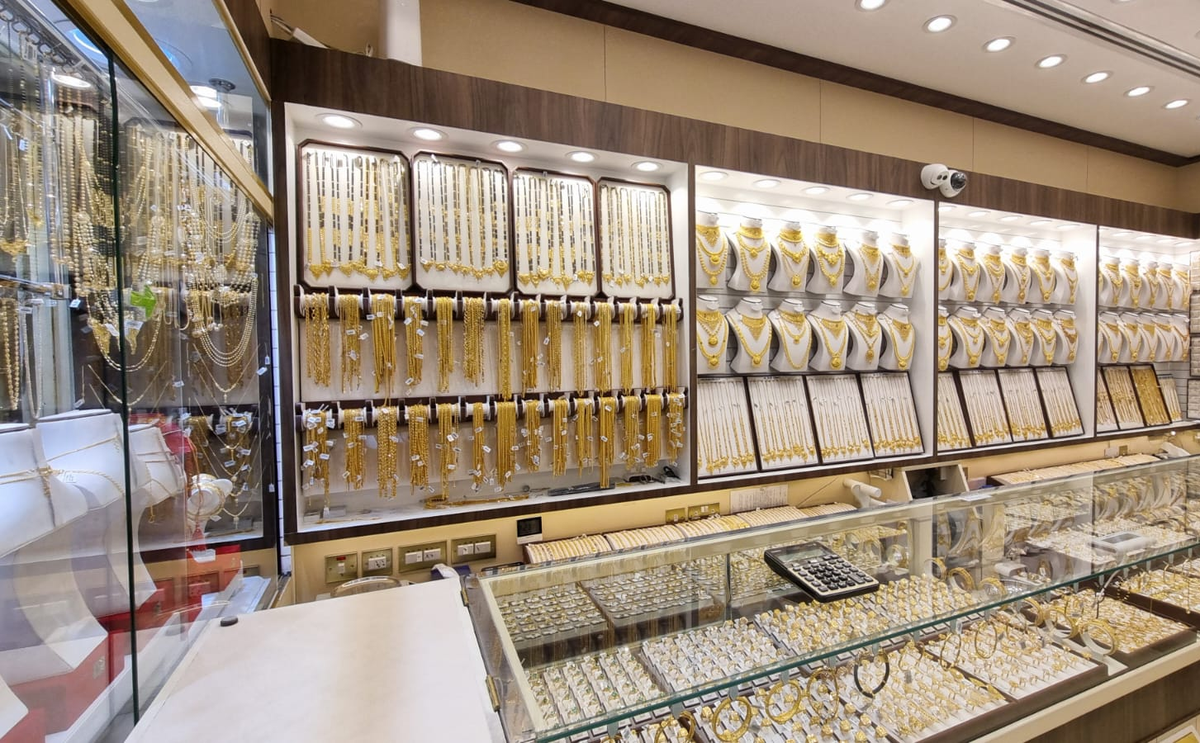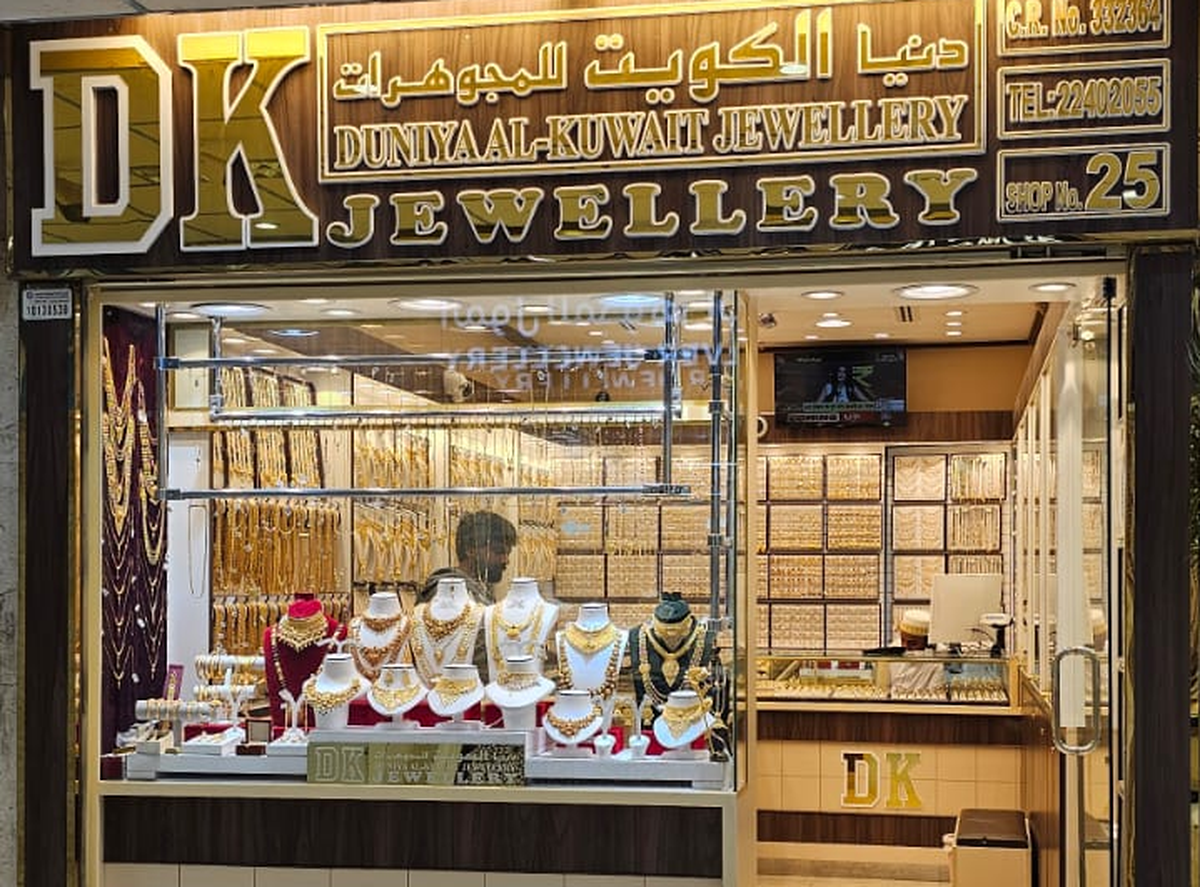11/04/2025
11/04/2025
KUWAIT CITY, April 11: All genuine gold items are stamped or hallmarked based on their purity. This hallmark typically includes a letter or number indicating the gold's karat, which reflects the fineness of the metal. The purest form of gold is 24 karat, or 24k. Most gold jewelry is made from 18k to 22k gold. The karat not only signifies quality but also plays a crucial role in determining the value of the jewelry. The price of a piece can be calculated by weighing it and comparing it to the current market rate for gold. One of the most important factors to consider when buying gold in Kuwait is ensuring that the jewelry is properly stamped. Many people are unaware that this stamp represents the certified purity of the gold.
Before purchasing any gold jewelry, it is essential to check for the hallmark that confirms its purity. This stamp serves as an official certification of the proportion of precious metals contained in the item. It is usually located on the inner part of the jewelry rather than on its outer surface. Buyers are strongly advised to avoid purchasing any gold that lacks an official stamp verifying its authenticity and quality.

Arab Times spoke with DK Jewellers in Kuwait City to discuss current gold-buying trends and the importance of exercising hallmarks, karats, and caution when making purchases. DK Jewellers has been in the gold business since 1987, specializing in gold jewelry, particularly 22-carat pieces, as well as 24-carat bullion. They are involved in both buying and selling. The following is the interview.

Q: Which nationalities typically buy the most gold?
A: Our major customers include people from India, Pakistan, Bangladesh, Sri Lanka, the Philippines, Nepal, Egypt, and Arab countries. Among them, Indians are by far the largest group of gold buyers.
Q: What karat of gold do different nationalities prefer?
A: Customers from India, Pakistan, and other South Asian countries generally prefer 22-carat gold. On the other hand, many Filipino customers tend to opt for 18-carat gold as their first choice.
Q: How does gold adulteration in countries like India, the Philippines, or Bangladesh compare with the situation in Kuwait?
A: In Kuwait, the gold trade is strictly regulated by the Ministry of Commerce and Industry, ensuring high standards and safety in quality control by stamping it. Compared to our home countries, gold in Kuwait is more reliable and trustworthy. Moreover, making charges and gold prices are relatively lower here, with no additional taxes such as GST. All gold items—whether it’s a necklace, ring, or chain—are first crafted in the workshop and then sent to the ministry for official stamping to verify the karat (e.g., 18k, 21k, or 22k).
Q: What is the process for getting a gold necklace, ring, or chain authenticated by the government?
A: Once a piece is completed in our workshop, it is submitted to the Ministry for testing and official stamping. Only after it receives the certified stamp do we display it in the shop. The ministry’s stamp helps verify the authenticity and carat value, and we also perform additional quality checks using standard testing methods.
Q: Is buying gold online safe? Please answer Yes/No with reasons.
A: Yes and No. While online gold shopping is a growing trend, we generally do not recommend it. Many customers prefer to see and inspect the jewelry in person before buying. That’s why most of our customers, especially Indians and other South Asians, choose to purchase gold in-store. However, online buying is a convenient option for those who cannot visit the shop easily, such as some Filipino customers. Still, we believe that buying gold in person offers greater confidence and reliability.
Why is gold the cheapest in Kuwait?
A: Gold buyers across the Gulf Cooperation Council (GCC) have long compared regional prices before making a purchase. Recent data now confirms that Kuwait currently offers the most affordable gold rates among GCC countries, including the UAE, Bahrain, Qatar, Oman, and Saudi Arabia. Experts attribute Kuwait’s attractive gold prices primarily to its favorable tax policies. Unlike several neighboring countries, Kuwait does not impose Value Added Tax (VAT) on gold purchases. In contrast, the UAE and Qatar have implemented a 5% VAT, increasing the final cost to consumers.
In addition, minimal import duties and streamlined regulations contribute to Kuwait’s standing as a cost-effective gold-buying destination. The absence of additional charges such as VAT or GST, combined with proximity to major trading hubs and efficient supply chains, helps local retailers offer gold at better prices.
Arab Times Special Report
by JCF
